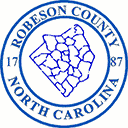Keeping You and Your Thanksgiving Turkey Safe
go.ncsu.edu/readext?325558
en Español / em Português
El inglés es el idioma de control de esta página. En la medida en que haya algún conflicto entre la traducción al inglés y la traducción, el inglés prevalece.
Al hacer clic en el enlace de traducción se activa un servicio de traducción gratuito para convertir la página al español. Al igual que con cualquier traducción por Internet, la conversión no es sensible al contexto y puede que no traduzca el texto en su significado original. NC State Extension no garantiza la exactitud del texto traducido. Por favor, tenga en cuenta que algunas aplicaciones y/o servicios pueden no funcionar como se espera cuando se traducen.
Português
Inglês é o idioma de controle desta página. Na medida que haja algum conflito entre o texto original em Inglês e a tradução, o Inglês prevalece.
Ao clicar no link de tradução, um serviço gratuito de tradução será ativado para converter a página para o Português. Como em qualquer tradução pela internet, a conversão não é sensivel ao contexto e pode não ocorrer a tradução para o significado orginal. O serviço de Extensão da Carolina do Norte (NC State Extension) não garante a exatidão do texto traduzido. Por favor, observe que algumas funções ou serviços podem não funcionar como esperado após a tradução.
English
English is the controlling language of this page. To the extent there is any conflict between the English text and the translation, English controls.
Clicking on the translation link activates a free translation service to convert the page to Spanish. As with any Internet translation, the conversion is not context-sensitive and may not translate the text to its original meaning. NC State Extension does not guarantee the accuracy of the translated text. Please note that some applications and/or services may not function as expected when translated.
Collapse ▲Can’t you already smell and taste those delicious foods that will soon be on your Thanksgiving table? We often cook so much food there is hardly any room left in the refrigerator! Sometimes cooking for a large crowd, whether at home or in the community kitchen, can lead to mistakes at the expense of your guests’ health. Holiday meals have been linked to outbreaks of salmonella, campylobacter, clostridium perfringens, and staphylococcus aureus. To avoid a food-related holiday illness, follow these simple tips.
When shopping, purchase eggs, meat, milk, seafood, and poultry last. Bag raw foods in plastic bags separately from ready-to-eat foods. Avoid any stops on the way home. If your trip home will be longer than 30 minutes, consider putting cold foods in a cooler and refrigerate as soon as you arrive home.
Thawing the turkey seems to be the biggest challenge. I recommend placing the turkey in a container in the bottom of the refrigerator. Allow 24 hours for every 4 – 5 pounds. A 15-pound turkey could take 3 days. Patience and planning are keys in this venture.
Don’t wash the turkey! Washing poultry is a cultural habit and is not safe. Recent research has shown that when washing poultry, the bacteria on the poultry can be spread within three feet of the sink. That might include some already prepared foods. One North Carolina State food safety specialist suggests wiping down the turkey with a damp paper towel as an alternative to washing.
The biggest risk comes from undercooking the turkey. Golden brown color, when the “juice runs clear,” or the “popping button pops” are not safe, reliable ways to know when the turkey is done. The best way to know whether the turkey is done is to use a tip-sensitive digital thermometer reading of 165°F. Stick it in several places away from the bone.
You finish your Thanksgiving meal and then it’s time to relax, right? Not yet! Improper cooling is a common reason for foodborne illness outbreaks. Refrigerate all leftover cooked foods within two hours of removing from the oven/heat. Turkey and other cooked foods should be cooled to 41°F as quickly as possible. Slice the turkey or ham and place in quart resealable bags. Lay the bags flat on refrigerator shelves for faster cooling. Separate food from large containers into smaller ones to hasten the cooling process.
Enjoy your safe food; but most of all, enjoy the special times with family and friends. Remember to practice moderation, so I don’t hear from you in January about all the gained pounds.
For more information, please contact Janice Fields, Extension Family and Consumer Sciences Agent with North Carolina Cooperative Extension, Robeson County Center, at 671-3276, by E-mail at Janice_Fields@ncsu.edu, or visit our website at //robeson.ces.ncsu.edu/.
NC State University and N.C. A&T State University are collectively committed to positive action to secure equal opportunity and prohibit discrimination and harassment regardless of age, color, disability, family and marital status, gender identity, genetic information, national origin, political beliefs, race, religion, sex (including pregnancy), sexual orientation, and veteran status. NC State, N.C. A&T, U.S. Department of Agriculture, and local governments cooperating.




